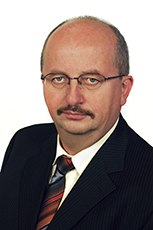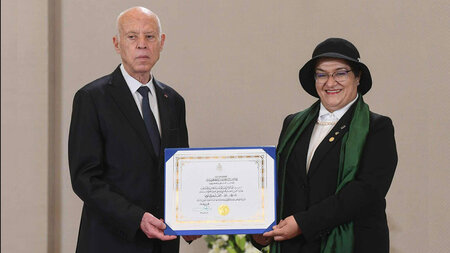Processes and Equipment for Energy-Efficient Logistics and Factory Systems
This includes addressing the following key points:
- Systematic, holistic identification and realisation of energy efficiency potential in the factory planning process
- Development of a concept for the sustainable use of “energy efficiency knowledge” for companies and for educational purposes
- Development of a concept for multi-period energy-related life-cycle costing for factories
- Implementation of energy efficiency as a logistics performance indicator in the planning and control of factory operation
- Development of energy-sensitive optimisation models, methods and algorithms for production control
- Determination of new active principles and technical logistics construction methods to reduce the mass of the load-bearing device, in particular in the case of vertical conveyance
- Investigation of traction and load-bearing devices based on new materials, combined with friction reductions in the sliding contact surfaces and a reduction in drive energy
Sub-Projects


With the objective of creating an energy-sensitive factory, there was a need for the integrative merging of the main aspects of production planning and control, energy management and the building and infrastructure management functions. To this end, methods and algorithms are being identified, analysed and evaluated, and suitable workflows for the networking of the control system developed. On this basis, energy-oriented optimisation algorithms are being developed and their practical application ensured. The Chair for Factory Planning and Factory Management (FPL) supports these activities by developing concepts for the energy-sensitive structuring of logistics systems, transport optimisation and storage control, thus augmenting the need for the holistic energy-sensitive analysis of the manufacturing and logistics operation of production systems. Furthermore, the energy aspect is integrated into the indicators for the production control and a holistic, energy-oriented, generic set of instruments for energy indicator systems developed. In order to demonstrate the devised methods, visualisation and interaction tools are being developed, which should provide decision-makers with real-time-oriented process and control information.
- eniMES - Production control in the Green Factory

- Energy efficiency analysis and optimisation for producing companies

- Linked energy and material flow simulation for process evaluation

- Augmented reality in production

- eniPROVED

- Economic methods and optimisation approaches for energy-sensitive production

- Methodological analysis and evaluation of the energy consumption of logistics systems

- Energy efficiency studies on internal logistics systems


The topic of the „Reduced-mass stock transportation system“ deals with the reduction of the transported mass of a load-bearing device for storage and retrieval machines, in order to reduce the energy consumption when loading and removing products in high-bay warehouses. In addition, research is conducted into the integration of cable conduits into toothed belts, which can be used instead of standard festoon cable systems. This should save weight and reduce efficiency losses.
Head of Field of Action

Prof. Klaus Nendel
Professorship of Materials Handling and Conveying Engineeringphone: +49 (0)371 531-32323
fax: +49 (0)371 531-23119
e-Mail: klaus.nendel@mb.tu-chemnitz.de
Professorship of Materials Handling and Conveying Engineering
Participants
| Dr. Volker Wittstock | Professorship for Machine Tools and Forming Technology |
| Prof. Lothar Kroll | Professorship for Lightweight Structures and Polymer Technology |
| Prof. Egon Müller | Professorship of Factory Planning and Factory Management |
| Prof. Klaus Nendel | Professorship of Materials Handling and Conveying Engineering (German) |
| Prof. Christoph Helmberg | Professor of Algorithmic and Discrete Mathematics (German) |
| Prof. Uwe Götze | Professorship Management Accounting and Controlling |
| Prof. Astrid Schütz | Professorship for Character Psychology and Diagnostic (German) |
| Prof. Frank Richter | Professorship Solid Body Physics (German) |
| Prof. Welf-Guntram Drossel | Fraunhofer Institute for Machine Tools and Forming Technology IWU |
| Prof. Matthias Putz | Fraunhofer Institute for Machine Tools and Forming Technology IWU |





